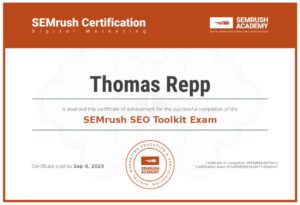 Artificial intelligence (AI) is being hailed as the next industrial revolution, promising unprecedented efficiency and innovation. However, for mid-size B2B industrial companies, diving head first into an AI strategy may be premature. Before embracing AI, it's crucial to solidify foundational branding and marketing efforts to ensure long-term success with AI.
Artificial intelligence (AI) is being hailed as the next industrial revolution, promising unprecedented efficiency and innovation. However, for mid-size B2B industrial companies, diving head first into an AI strategy may be premature. Before embracing AI, it's crucial to solidify foundational branding and marketing efforts to ensure long-term success with AI.
1. AI Can't Compensate for Weak Branding
A strong brand is the cornerstone of any successful marketing strategy. Without a clear and compelling brand identity, AI tools will have little substance to amplify. Focusing on establishing a robust brand narrative ensures that when AI is eventually integrated, it enhances and disseminates a message that resonates with your target audience.
2. Prioritize Marketing Fundamentals
Before venturing into AI, ensure that your basic marketing basics are in place:
-
Updated Website: Your website should be modern, user-friendly, mobile friendly and reflective of your brand's identity. It's still the "mothership" "Always on" marketing.
-
Effective SEO Practices: Optimize your content to rank well on search engines, making it easier for potential clients to find you. SEO fundamentals are the building blocks for great AEO (answer engine optimization).
-
Consistent Content Marketing: Regularly produce valuable content that addresses the needs and pain points of your audience with a great industrial brand story woven in.
By mastering these elements, you'll create a solid foundation that AI can later build upon.
3. Understand Your Audience Deeply
AI thrives on data, but without a thorough understanding of your ideal customer profile, the data collected may be irrelevant or misleading. Invest time in market research to identify who your customers are, what they need, and how they interact with your brand. Adding data to your good industrial instincts will be invaluable when you eventually integrate AI into your marketing efforts.
4. Building a "Publishing Culture" Around Your Brand Story
AI thrives on content, but without a steady flow of high-quality, brand-driven messaging, it has nothing to amplify. Before even thinking about AI, B2B industrials must cultivate a publishing culture ... one that consistently produces content aligned with their brand’s unique story and market position. This means developing thought leadership, case studies, blog posts, and marketing materials that reinforce your expertise and differentiation within your industrial niche. When AI tools enter the picture, they should be working to elevate a well-established industrial brand, not scrambling to make sense of a scattered or nonexistent message.
5. Align AI with Business Objectives
When the time comes to adopt AI, ensure that its implementation aligns with your overarching business goals. Rather than adopting AI for its novelty, integrate it in ways that support your specific objectives, whether that's improving customer service, streamlining operations, or enhancing marketing campaigns.
Final Thoughts: AI is a Tool, Not a Strategy
While AI offers exciting possibilities for B2B industrial companies make up for lost time, it's essential to walk before you run. By strengthening your branding and marketing fundamentals now, you'll be better positioned to leverage AI's full potential in the future, ensuring that your business not only keeps pace with industry advancements but leads the way.
Want to know more? Go to What We Do or Contact Me in the menu above. Or give me a call at 269-375-0349.
Author:Tom Repp
A passionate marketer attempting to change the way industrial marketers leverage the web as a growth-oriented, lead generation machine. View all posts by Tom Repp



